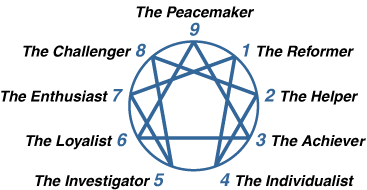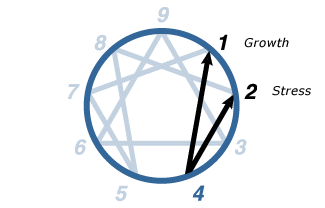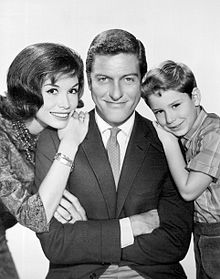CHAPTER 1
I had never been to confession. Dad pastored a church, but it wasn’t Catholic, so confession was never part of my experience growing up. But I saw the practice represented in movies and TV shows, and books that I had to read in high school. I didn’t understand how the priest could sit there in that booth and just listen to people share their darkest secrets all day.
As I sat across the desk from Sheriff Wilson, I wondered if there were any cases that had been solved by someone impersonating a priest sitting in a confession booth. Was it even legal for someone employed by the government to impersonate a member of the clergy? Then I realized I was thinking about Catholic confession for some reason and not listening to what Wilson was saying.
“…know this will be a trying time for a lot of folks. Jack Romero was a local celebrity of sorts and will be sorely missed.”
It had been less than an hour since the sheriff had shown up at O’Callaghan’s with the news: Jack Romero was dead.
Sheriff Wilson asked Abby and me to come down to the precinct, so we cleared out O’Callaghan’s for the night. Getting the Dinsmore twins out of the bar had been fairly simple, all I had to do was turn off the TV. Getting Calvin Davis and Frank Jenkins to move their chess game elsewhere proved more difficult. But harder still was convincing Robby Romero to go home. The kid loved his uncle. He tried to force his way into the back of Sheriff Wilson’s car with us, desperate to know what was going on. Took everything I had to get him to settle down; he was a scrawny kid, but he had that twenty-year-old fire in him that was hard to put out. Eventually I managed to grab him by the shoulders and tell him he needed to go home and be with his aunt, that she needed him there. In response, he sniffed, wiped his nose on his sleeve, and silently rode his bike home.
Abby sat next to me in the sheriff’s office, her hair falling in auburn waves from underneath a black beanie. She seemed just as uncomfortable as I was. The hard plastic of the chair had already started hurting my back. A small office fan next to some black filing cabinets in the corner of the room turned back and forth, sending a small gust of air our way every few seconds. The occasional breeze helped cut through the thick air of the sheriff’s office, but carried with it the lingering scent of Wilson’s cologne mixed with his body odor. Couldn’t decide whether it was a blessing or a curse.
I was still processing how this could have happened. Jack had come into the bar at seven o’clock the night before like he always did. He sat in his usual barstool and ordered a Jack and Coke (or, more accurately, a “Me and Coke,” as he always called them) and after a few hours and a few drinks, walked back home. Just like every other night.
If I had only made sure Jack made it home last night.
Wilson asked, “Do you need any water or anything? I think we might still have some sodas in the vending machine, might be a little flat at this point.” Abby and I shook our heads. “All right. I’ll just get started, then. Can you recall what time Mr. Romero left last night?”
“One in the morning,” I said, “I always kick everyone out around then.”
“And how did your last exchange with Mr. Romero go?”
Abby spoke up, “Nothing out of the ordinary. He had a few of his usual drinks, but he was still good to walk home.”
“He’s made it home fine in worse shape,” I chimed in. “Didn’t think anything of it. Just pointed him in the right direction like I do every night.”
“Well,” Sheriff Wilson said, running a hand along his sloppily-manicured goatee, “last night was different. Mrs. Romero contacted us this morning to file a missing persons report, so we started searching for him. Now,” Wilson opened the manila folder sitting on his desk, “Jack Romero’s body was found in the bottom of the golf course drainage ditch around three o’clock this afternoon.”
I had run past the drainage ditch on my jog earlier that day. When I thought about it, there hadn’t been anything notable about my run that morning. Greeted some of the locals. There were a couple men fishing in a boat out in the middle of the lake. At least I think they were men. They were wearing big fishing hats, so I couldn’t really tell. One of them waved, so I waved back. Nothing special. Definitely wasn’t anything in the ditch.
I asked, “Do you suspect foul play?”
“Well yeah,” Wilson said. “He had a bullet in his brain, after all.”
“Wait,” Abby said, sitting upright, “all you said earlier was that Jack died. Are you saying he was murdered?”
“We believe so, miss.”
Abby sank back in her chair and released a slow, tense breath through pursed lips. Her hands started shaking. I grabbed her hand and squeezed it gently. Not sure why, just seemed like the right thing to do. She’d only been in town for a couple months, but she knew Jack almost as well as anybody. Not that she really had an option; Jack had a tendency to share his life story with everyone he met.
I turned back to Wilson and asked, “Why the hell didn’t you lead with that?”
“Sorry, CJ,” Wilson said, “but mass hysteria is the last thing we need right now. Especially with the winery’s grand re-opening coming up.”
The winery. Everything was always about the goddamn winery.
The sheriff looked at the front sheet of a packet held together with a purple staple. He said, “We’re still waiting on the autopsy. Should be finalized by tomorrow morning.” Wilson lifted the front sheet and looked at something on the one behind it; a photo was paperclipped to the front of the packet.
“Can I see it?” I asked.
“Hm?” Wilson said, tilting the report to look at me.
“The crime scene photo.”
Wilson gave me a quizzical look, then pulled the photo off the front of the report and handed it to me. I knew what was coming, but my throat tightened all the same. Jack Romero: Arms and legs splayed out in no apparent configuration, eyes wide in shock. It was unnerving enough seeing his thick, graying mustache without a cigar clamped beneath it. But worse than that was the hole punched in the center of his forehead. I had seen hundreds of crime scene photos in my time with the L.A.P.D. and been completely unfazed; this was the first one that had really gotten to me.
“And you’re sure it wasn’t suicide?” I asked.
Wilson nodded and said, “No weapon found on the scene, so suicide’s out of the question. Now, we haven’t had a murder here in Jonesboro for…” He set the report on his desk and trailed off, searching the ceiling for an answer. “Hell, I don’t know if there’s ever been a murder in Jonesboro, honestly. The most damnable crime we’ve had in thirty years was when we busted those teens skinny-dipping in the lake a few years back.” He shook his head. “Like I said, the winery’s grand re-opening is in less than three months. If we want this town to survive, we have to keep this under wraps as best we can. In order to do that, we need to keep this investigation in-house and out of any major news outlets. So we’ll tell people that we’re looking into Jack’s cause of death, but that it appears to be natural causes from what we can tell. That should simultaneously keep the news quiet and help prevent the people in town from getting too worked up.”
Abby took in a slow breath and exhaled. She shook her head, the two large, feather earrings dangling from her ears swaying with her movements. “So what are you wanting from us exactly?”
“From you, Ms. Smith?” Wilson put on a face of indifference and shook his head. “Nothing, really. We’re just asking you to keep this to yourself. Now, Mr. Christopher Harris here, on the other hand.”
My head snapped up from the crime scene photo.
Don’t do it. Don’t you dare.
“I was hoping you could help us with the investigation,” Wilson said. “You have some experience with this kind of thing, being a detective from a big city and all. Ralston and I don’t. If I’m being honest, we’re not even sure where to start. But we sure as hell can’t let this get to the state police. If the winery’s re-launch doesn’t go as planned and tourism doesn’t start up again, Jonesboro’s as good as ruined. We’ll all be out of a job before long. So I guess what I’m asking is,” his chair creaked as he leaned forward and folded his hands on his desk. “Can we count you in?”
I could feel Abby’s eyes focus on me in anticipation.
I swallowed.
I had no intention of doing any sort of detective work after turning in my badge, but I had begrudgingly offered my freelance services to help the sheriff out when he and Officer Ralston couldn’t solve the case of “Who the Hell Ran Into the Stop Sign On Third and Main” a year earlier. All I did was ask Jason Hardwick about it after school one day and he confessed. I hadn’t seen that kid look up from his cell phone once in the three years I’d been in town, which didn’t mix well with a new driver’s license. It wasn’t hard to put together if you kept your eyes open.
But Wilson couldn’t pull his eyes away from the naked women flashing across the computer screen in the darkness of his office long enough to do his job. (I had been unfortunate enough to catch him with women moaning through his computer speakers in the middle of the day more than once, even after knocking.) Officer Ralston had the energy and dedication, he just didn’t know what to look for yet. It was his first gig, after all. The only reason he was still around was because he got a nice little pay raise when budget cuts resulted in him being fifty percent of the local police department.
I didn’t start helping Wilson out because I wanted to. I did it because if I had to watch Jonesboro’s two-man police force bumble their way through another simple investigation, I would have lost it. Busting teens for tagging the back of the supermarket was nothing. Neither was finding Mildred’s cat for the thousandth time. But I wasn’t ready to step back into this world again, to really jump back in the trenches.
I turned to look at Abby. Her hazel eyes glimmered with what looked like hope. Maybe even a bit of admiration. Her hand gripped mine tightly. I closed my eyes, took a deep breath, and looked back to Sheriff Wilson.
“Sure.”
***
Wilson drove Abby and me back to the empty bar and the two of us cleaned up and shut down for the night. Abby sat at the bar, head buried in her hands. She was still, as if someone had carved a contemplative stone sculpture, bellied up to the bar. I started my wipedown of the counter and asked, “You okay?”
She wiped her hands down her face, as if trying to pull some of the exhaustion with it. “Yeah. No. I don’t know.”
“You don’t have to be.”
She leaned her head against her palm, looking toward me, but not at me. It was that look people have in an instant when they recount all of the events in their life that led to the current moment.
“How did you do it?” she asked.
“Do what?”
“When you were a cop. How did you deal with this kind of shit day in and day out?” She pressed her palms against the bartop and looked at her hands. “How did you see this side of people—the dark side of people that can leave someone dead in a ditch—how did you do it?”
I leaned against the bar. “Well, it’s a lot easier when the victims are strangers. Nameless, faceless people that you didn’t know yourself. It’s easier to distance yourself from it. And when you work as much or as hard as I did, you just start to grow numb to it. Like you’re just always walking around in a dream.” I shrugged. “Thing about dreams is you have to wake up eventually.” I tossed my rag into the bucket under the sink. The rags were piling up, so I grabbed the bucket to take home.
Abby said, “Did you always want to be a detective?”
I set the bucket on the counter and threw the question back at her: “What about you? What do you want to be when you grow up?”
“I’m not that much younger than you,” she huffed.
“Oh please, I’ve got at least ten years on you. You’re what, twenty-two?”
“Twenty-four.”
“Okay, so nine years on you. But you still have plenty of time. And I’m sure you didn’t plan on working three jobs as the sole provider for yourself and your sister in rural Washington.”
She laughed. “What, isn’t that every kid’s dream? Besides, I grew up a long time ago. Had to.” She went quiet. Seemed to be something stirring in the back of her mind.
“So what was it?” I prodded. “What was your dream?”
She rolled her eyes and tried to look at me like I had guessed totally wrong. Like she had never had a dream at any point in her life. I stared back. I knew I wasn’t wrong.
She relented and sighed, “I wanted to be a dancer.”
“A dancer? You?”
“Oh, shut up, don’t be a dick.” She punched my arm playfully and shifted on her stool. “Yeah, I wanted to be a dancer. I dreamed of being a prima ballerina at the Met, believe it or not.” She shook her head. “Stupid, right?”
I set a couple glasses in the sink and looked her in the eyes. Her hazel eyes still welled up with a fantastical hope, different and yet the same as the kind I had seen earlier in the sheriff’s office.
I said, “Not at all.” She smiled sadly. Wasn’t sure if that was the answer she wanted to hear or not. “So what happened? What made you give up on it?”
Abby looked away from me. Silence filled the bar, the overhead speakers switched off for the night. Then she said, “Well, Mom died. Then Dad started drinking.” She looked back at me and smiled again. “And fifteen years later, here I am.”
The two of us stared at each other for what felt like an hour. Several things whirled through my mind: Things I could have said, things I could have done. Fortunately, I didn’t act on any of them. Abby wiped her eyes. I grabbed two glasses, poured two shots of Jim Beam and handed one of them to her. I lifted mine in the air and said, “To finding a new dream.”
We clinked the glasses and threw back the bourbon.
***
Balancing the bucket of bar rags on my knee with my elbow, I pulled the keys out of my pocket to lock the front door of O’Callaghan’s. Abby shuffled back and forth trying to keep warm in the soggy night air next to me while I fiddled with the lock. We were closing up much earlier than normal and the rain had let up, but it had been a long day and it was still damn cold out.
“So what happened?” Abby asked.
“Hm?”
“Being a detective was your dream, wasn’t it?” She set both feet firmly on the ground, waiting for a response. When I didn’t give one, she asked, “Why did you give it up?”
I locked the deadbolt and put my keys back in my pocket. “You really wanna know?”
She nodded.
The church bells down the street rang. Ten o’clock.
“I killed my dad.”
***Note: Thanks for reading! This is the first chapter of the novel I’ve been working on, and is still currently in a draft phase. This chapter has undergone dozens of revisions, including two revision sessions just in the last twelve hours. What I’ve written here may change as I approach a final draft. If you enjoyed what you read, please let me know!



